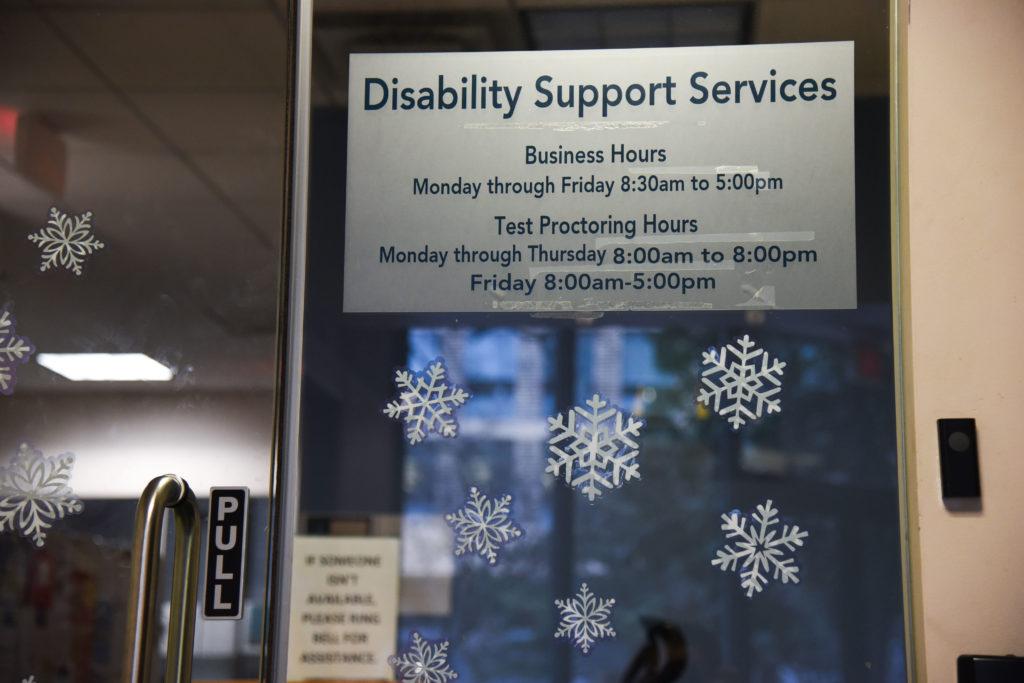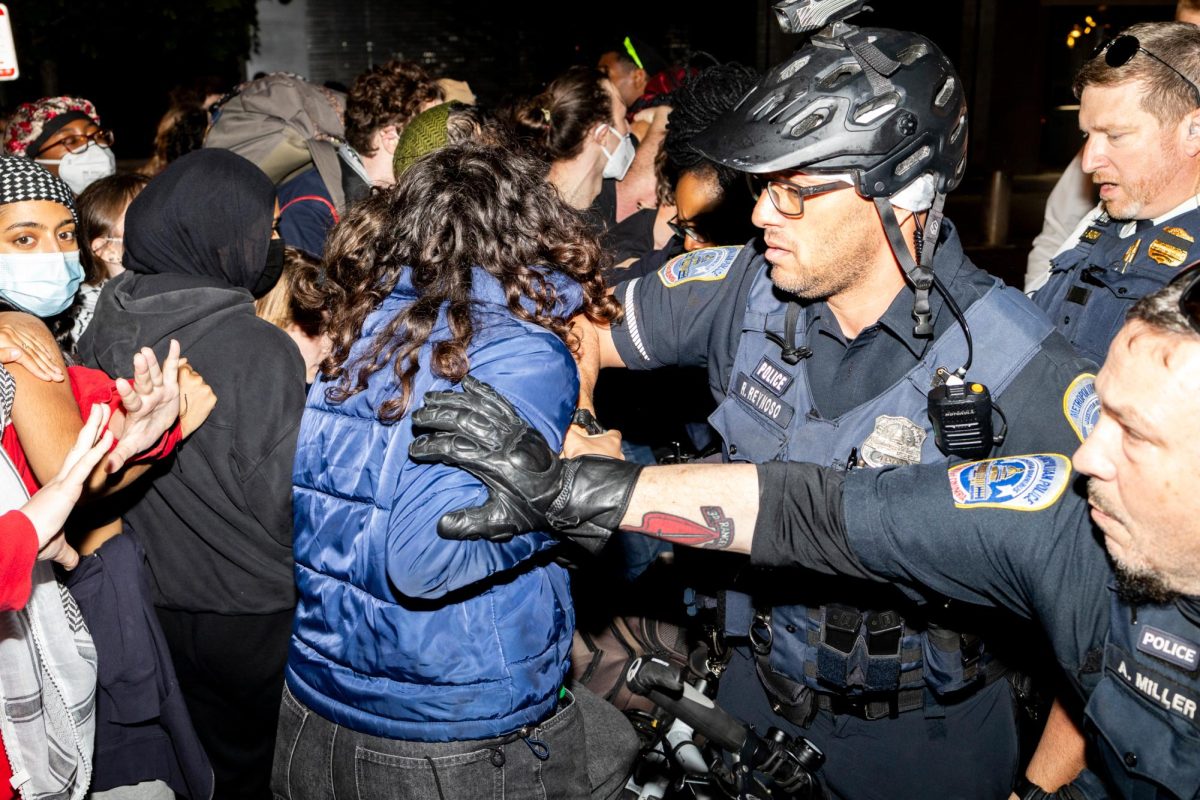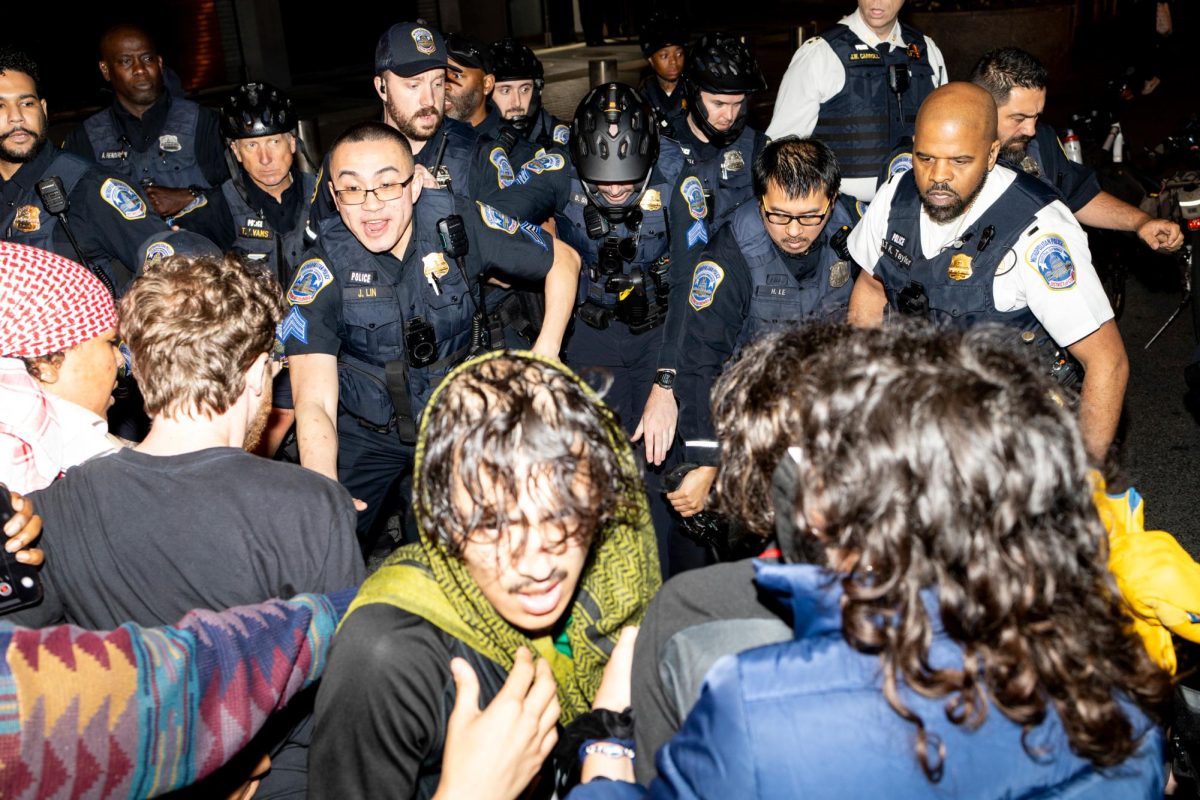A pair of Disability Support Services leaders have stepped down in the past two months, staff turnover that students said has created delays and a lack of resources for more than 25,000 graduate and undergraduate students.
DSS Assistant Director Diedre Lamb departed from the University just over a year after she joined the team and fewer than two months after Director Maggie Butler left her position in September to work as an “accessibility consultant” at GW. In the wake of understaffing, students said they’ve faced long processing times for test accommodation requests and difficulties contacting staff members.
DSS’ workforce decreased from 11 staffers in the 2018-19 academic year to six staff members in 2022-23. Former employees attributed their departure to an unsupportive environment and leadership changes in the unit.
University spokesperson Julia Metjian said Myra Waddell now serves as the interim DSS director. She said interim leaders, a new DSS staff member, part-time staff and other staff are currently filling DSS responsibilities for students from all schools and programs.
She added that officials are seeking two new positions in the DSS office, in addition to a new director and assistant director. Metjian declined to comment on when and why Lamb left her position as assistant director and how officials plan to support remaining DSS staff.
“During this transitional period, DSS’ resources remain available to the community, and we will continue to ensure staffing support and uninterrupted service for students,” Metjian said in an email.
DSS staff members include Senior Accessibility Associates Ashley Smith and Elizabeth Queen, who assist with test proctoring, Associate Director of Disability Technology Access Chia-Ling Chiao, Senior Accessibility Associate for Student Connections Ann Bodnar and Senior Accessibility Associate Jessica Machado, who joined the staff Oct. 30.
Bodnar no longer has a Calendly online scheduler available on the website since at least Oct. 23, according to website archives. The only other schedules available are for Machado and Chiao, who is available to discuss technology-related concerns, and the schedule redirects students to reach out to Lamb, Butler or Bodnar for support in additional areas.
Students said there have been longer wait times and challenges accessing accommodations and contacting their point of contact at DSS since the directors stepped down.
Sophomore Sophia Lindsay, the Disabled Students Collective’s underclassmen representative, support group leader and DSS liaison, said students have faced increased wait times for responses and a shuffling of representatives due to staff members being “overworked” from understaffing and a lack of administrators starting after Lamb and Butler’s departure. She said DSC brings student concerns to the attention of DSS staff, like requests for housing accommodations.
“Students will definitely notice that things are going a little bit more slowly. Any requests that they have for the DSC to bring to DSS might not be processed as quickly as normally,” Lindsay said.
Lindsay said services from DSS representatives, like test accommodations, remain consistent in quality but that communication is lacking due to a lack of staff, which she said is the administration’s responsibility to address.
“The only way we can accomplish more is by treating the employees with respect and kindness,” Lindsay said. “Because if we lose any more employees, things will just get harder.”
Lindsay said the administration should hire additional DSS staff and increase their funding to prevent slow response times instead of expecting the current DSS representatives to assume the increased workload.
“This is on the University for not prioritizing disabled students and for not prioritizing DSS services and for not giving these employees the services that they need so that they can do their jobs and maintain their own well-being,” Lindsay said. “So we need to put pressure on the University to start hiring people and to start giving DSS the funding and the attention that they need.”
Sophomore and Student Association Sen. Jonesy Strell (CCAS-U), the chairman of the Senate’s Community Advocacy and Inclusion Committee, said the reduction in staff has muddled points of contact, created student competition for services and delayed response times. He said he has received emails containing information on alternate testing locations as part of his accommodations one or two days later than he did last year, when emails usually came in no later than two days prior to the test date.
“While it hasn’t become extreme yet, my fear is that, say, they get to a point where they start sending an email, let’s say, a few hours before my test date, that’s incredibly inconvenient for me and my schedule,” Strell said.
Strell said the process of getting accommodations this year was like “fighting on my own” and that he had to get his parents involved to get officials to respond to extended test time requests. He said he has not worked with his point of contact, Chiao, to get test accommodations this year in the way that he did last year because she has less time due to the understaffing.
“I want to be clear, in the senate, we’re not against DSS in any way,” Strell said. “We just want services to be better for students and we know that in order to do that, whether it’s from my work in the senate, my work through Disabled Students Collective, the way that we do that is to work with them, have an open dialogue.”
Ethan Fitzgerald — the co-chair of the SA’s Mental Health Assembly, a group of 20 students and SA members that works to audit the GW’s mental health resources and generate a final report with recommendations — said the group is promoting mental health resources on and off campus, including DSS’ mental health services like attendance flexibility, exam accommodations, housing accommodations and approval and documentation for service and emotional support animals.
Fitzgerald said students registering their disabilities with DSS and getting accommodations approved by DSS must attend three meetings with their assigned DSS staff members, which has been challenging for students due to the lack of DSS representatives.
“Because of the staffing limitations, people have seen that there aren’t as many resources available, and they’re not accessible as quickly as possible,” Fitzgerald said.
Fitzgerald said students are resorting to conversations with professors to bypass DSS and receive accommodations directly from faculty, but the DSS website states that without an official DSS “Letter to Professors,” professors are not required to meet requests for accommodations.
“It obviously is frustrating for a number of students who need these accommodations, and for example, in instances of mental health, you need those accommodations often rather quickly,” Fitzgerald said.





